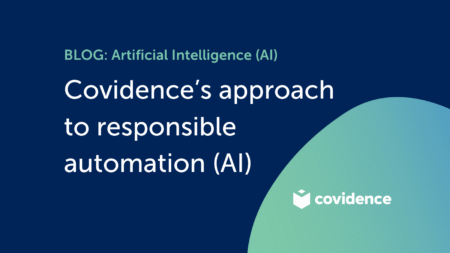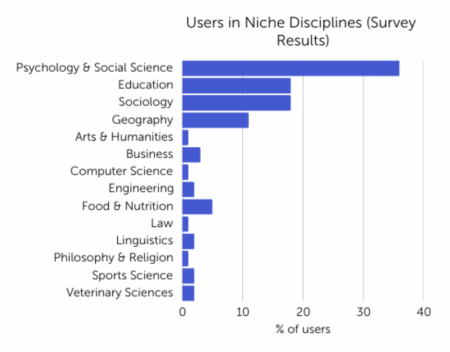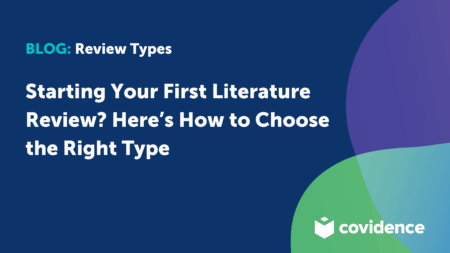On the 8th April 2025, Covidence sponsored the Mercian Collaboration Event at the University of Birmingham, where a group of librarians from universities across the Midlands came together for a series of talks and roundtable discussions on systematic reviews.
We learnt that librarians face a whole host of challenges when it comes to systematic reviews, and knowing how to successfully support researchers and students with their research is not easy.
“I have trouble weaning students off of Google Scholar and encouraging them to use keywords rather than just typing names of studies or broad topics in.”
“I’m hesitant to help with doing the search strategy for post-graduate researchers because they’re assessed on it – I should be advising them, not doing it for them.”
These are just a couple of examples of what was said by librarians throughout the event.
In many cases, librarians want to upskill in systematic review knowledge so they can guide researchers with greater confidence. Whilst some librarians shared they had taken part in online courses on systematic review methodologies, many are facing budget restrictions and competing priorities.
With this in mind, many interesting discussions took place throughout the day on how librarians can work on capacity building and supporting each other in order to best prepare for helping students and researchers with systematic reviews.
Here’s our top 3 takeaways that every librarian will likely relate to!
3 Key Takeaways For Librarians on Systematic Reviews
We’re Lacking in Research Guidance Beyond Medical
During Becky Collins’ talk (of Coventry University) at the Mercian Collaboration Event, it became clear that systematic reviews are still identified primarily with the medical industry, even though there are plenty of other research fields equally in need of review frameworks and resources. The lack of tailored guidance for areas like business and psychology means that they are forced to shoehorn their research into frameworks not designed for them, limiting the ability to complete their research with the same accuracy and impact.
Conducting systematic reviews in non-medical disciplines presents unique challenges for both researchers and librarians. Unlike the well-established protocols and structured databases available in healthcare fields, these disciplines often lack standardized methodologies and comprehensive indexing in databases. Researchers may struggle with defining precise search strategies due to the interdisciplinary nature of topics, while also facing ambiguity in inclusion criteria and review scope.
For librarians, supporting these reviews can be complex, requiring deep subject knowledge, creative search approaches across diverse and sometimes less-accessible sources, and ongoing collaboration to adapt traditional systematic review methods to fit the nuances of these fields.
These challenges highlight the need for tailored guidance, flexible tools, and enhanced training for both researchers and information professionals outside the medical sciences.
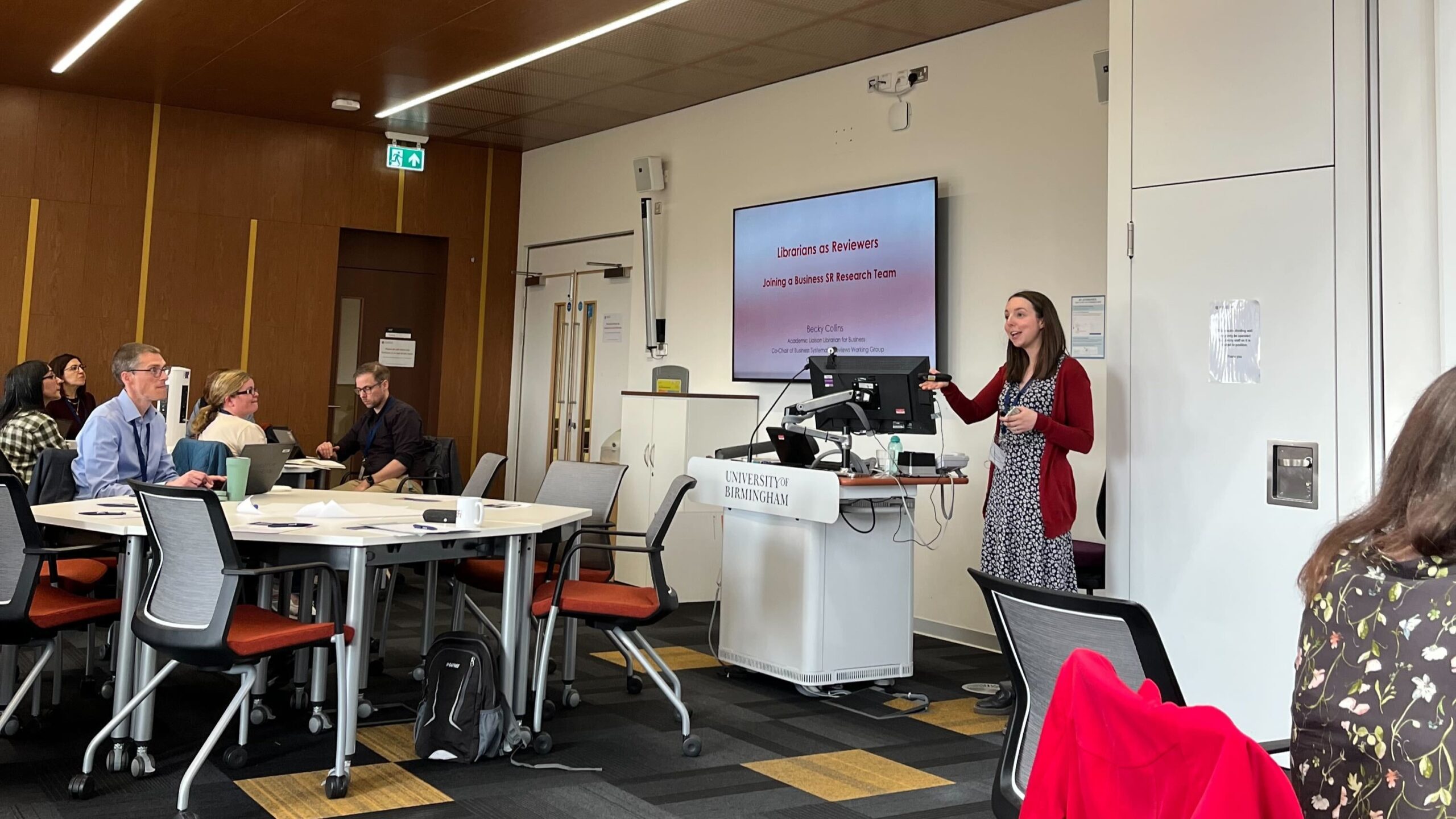
Community is Everything
Seeing 35+ university librarians gather around a room to discuss their everyday roles, challenges and research goals was really special – and especially since many had not attended events like this since before COVID-19!
For the day, it felt like a “safe space” for everyone to open up, ask questions and get support from their peers. A common theme throughout the talking sessions was the feeling of imposter syndrome, and librarians struggling to believe in their value, especially in relation to supporting researchers with systematic reviews, who are experts in their field.
Kathryn Devine (University of Worcester) and Giada Zanella (Aston University) shared a link to a Discord community where 300+ librarians have gathered in the last year to ask questions and seek guidance from their peers, and it’s great to see this group continuing to grow! Why not join yourself through this link: http://tiny.cc/SRDiscord
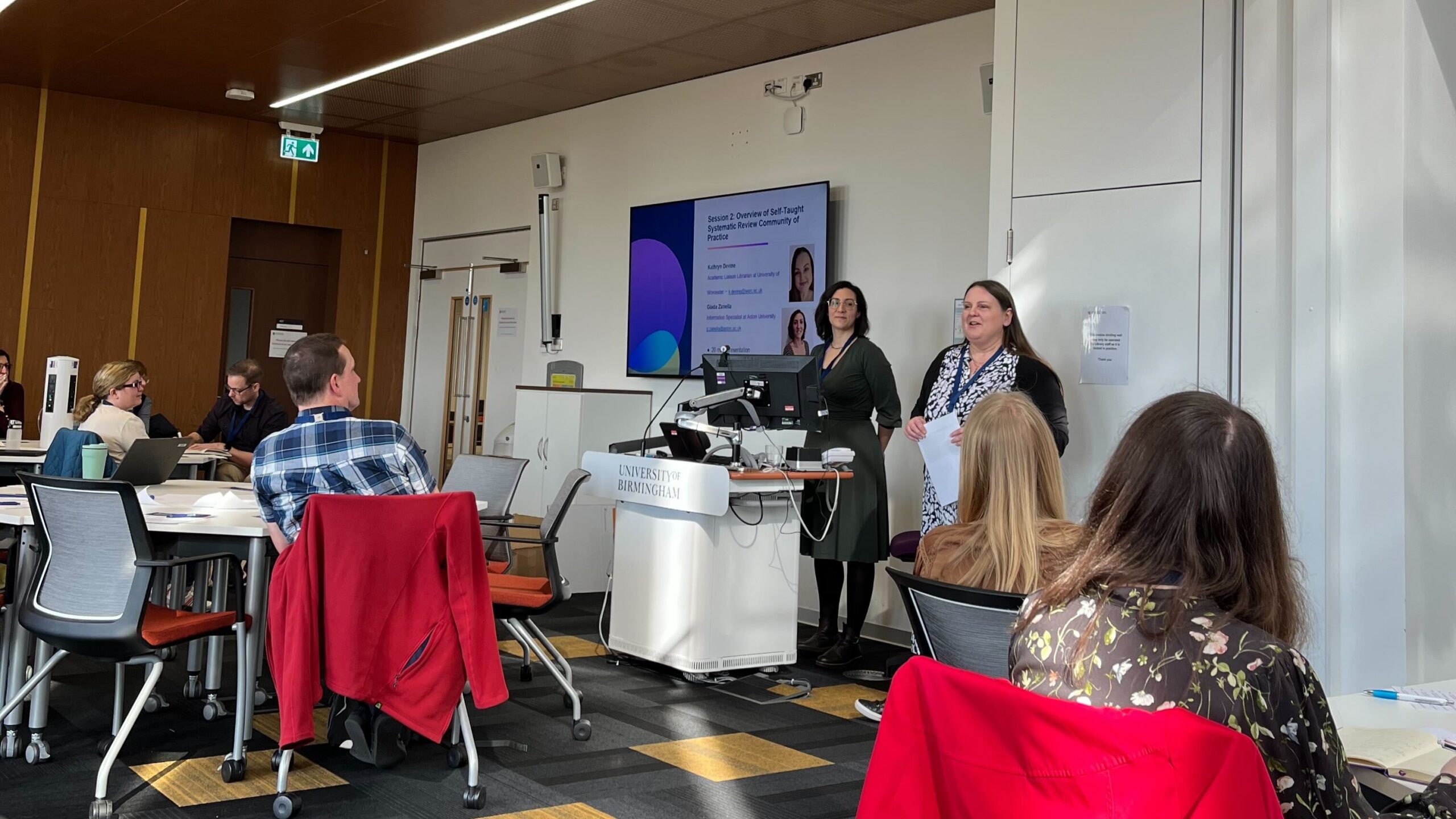
AI Has To Be Used With Caution
As with many industries, AI is naturally at the forefront of systematic review discussions. Can it be used to automate the process to reduce time? What sections of a systematic review is it most beneficial for? Is there a limit to what AI can do?
We had a room full of very different opinions at the Mercian Collaboration Event, but what it came down to was this: AI can be used for summarising papers, generating keywords, scoping/planning, but quality checking must never be overlooked. AI may be able to help speed up the process, but the human element is still so important. What is a systematic review without the critical thinking of a real person who has all the contextual knowledge not just from the past (like AI, which is built on historical data) but of the present moment and intuition of future implications?
Many librarians raised the point that systematic reviews are already seen by some as an easy route to publication, and this may cause even more to rely on AI to do so. The problem being that some systematic reviews are blocked at the publishing stage if protocol/search is not done properly (whether AI-related or not), but not all are.
Take a read of Covidence’s approach to AI automation here.
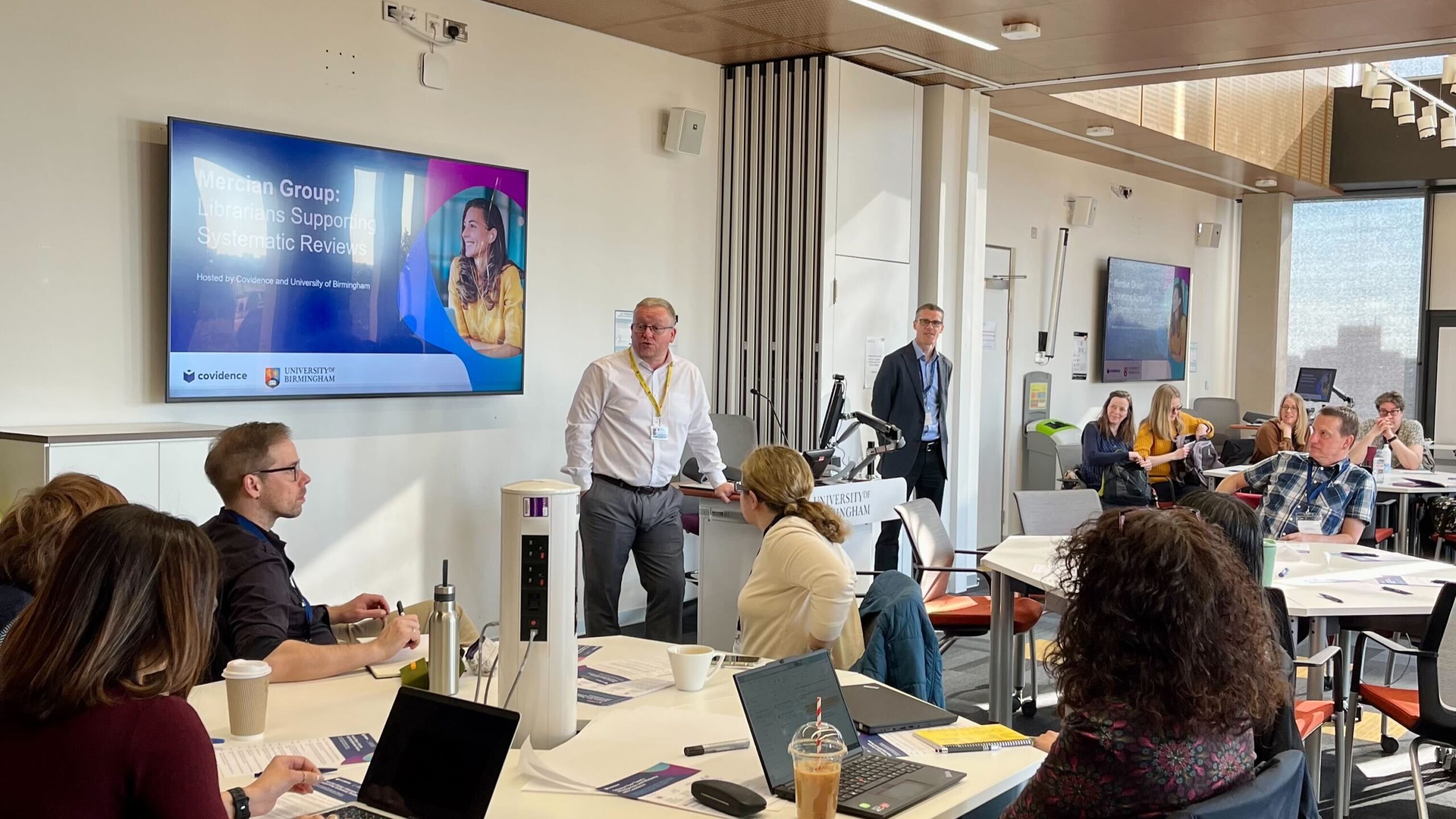
Overall, the Mercian Collaboration Event showed us that librarians benefit from simply being amongst their peers, and especially in a space where they could share their challenges without judgement. Everyone moved forward from the event with greater knowledge on how librarians can support students and researchers better with systematic reviews.
If you attended the event, thank you for sharing your experience as a librarian. And if you didn’t but resonate with the above, we hope you feel a sense of support through these words.
Do you belong to a group of librarians and would like us to be part of your upcoming event? Please express your interest here.
At Covidence, we offer an intuitive, easy-to use platform for researchers to complete screening, full text and data extraction with greater speed and accuracy. If you’re interested in finding out more, check out our free trial or book a time to speak with us.
